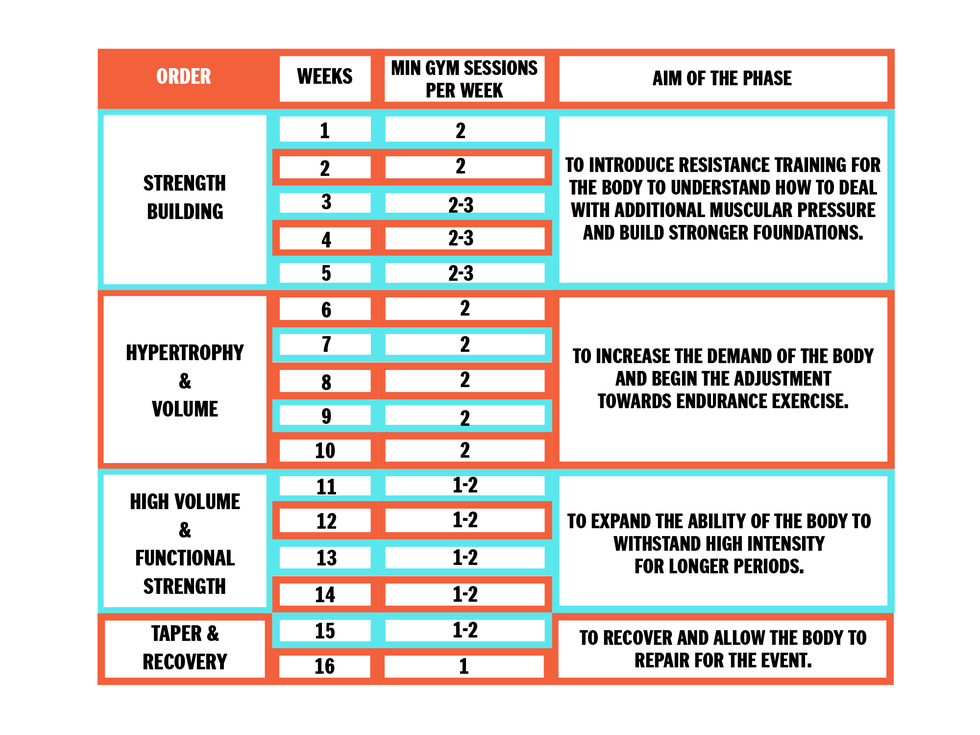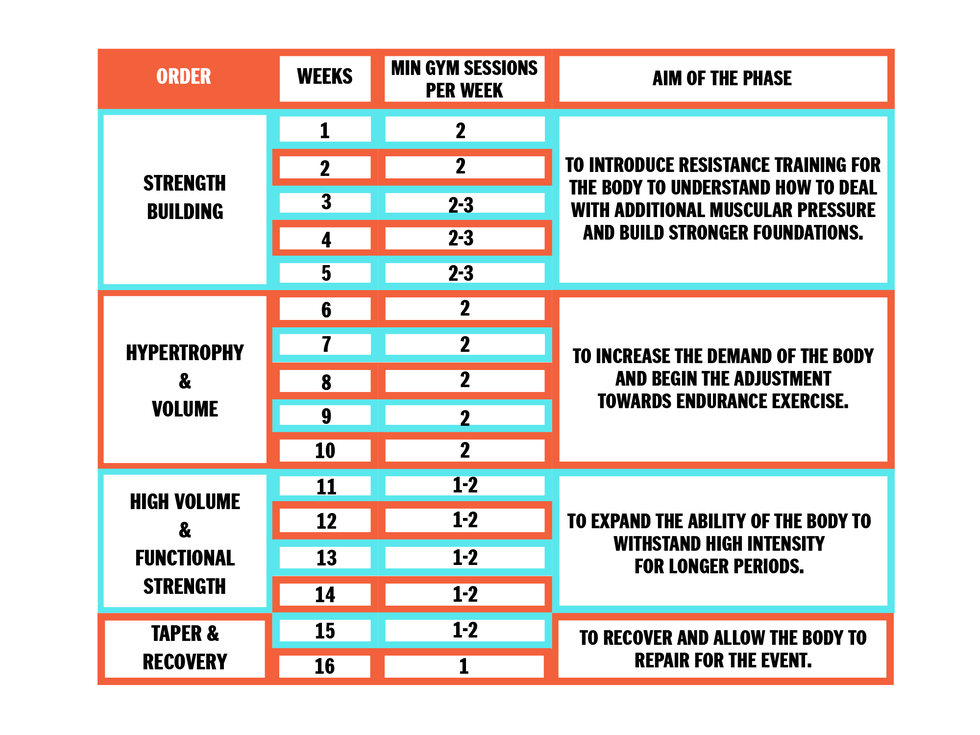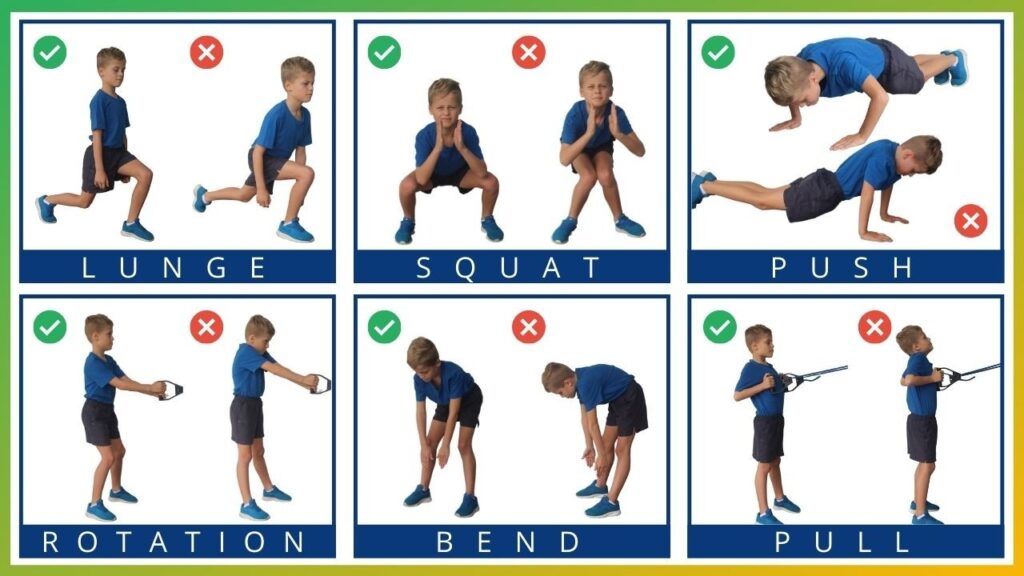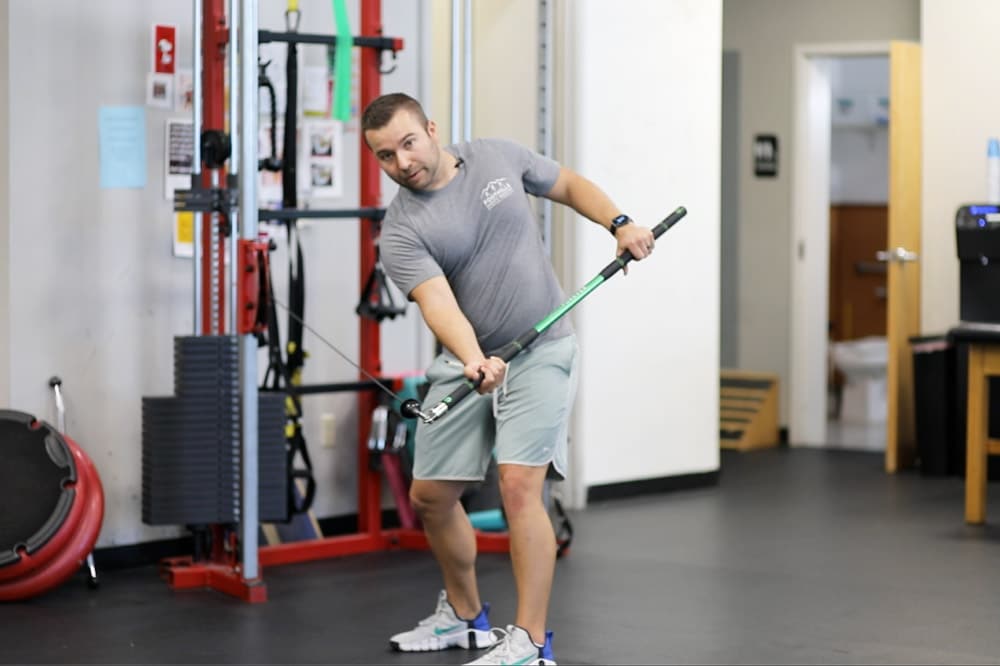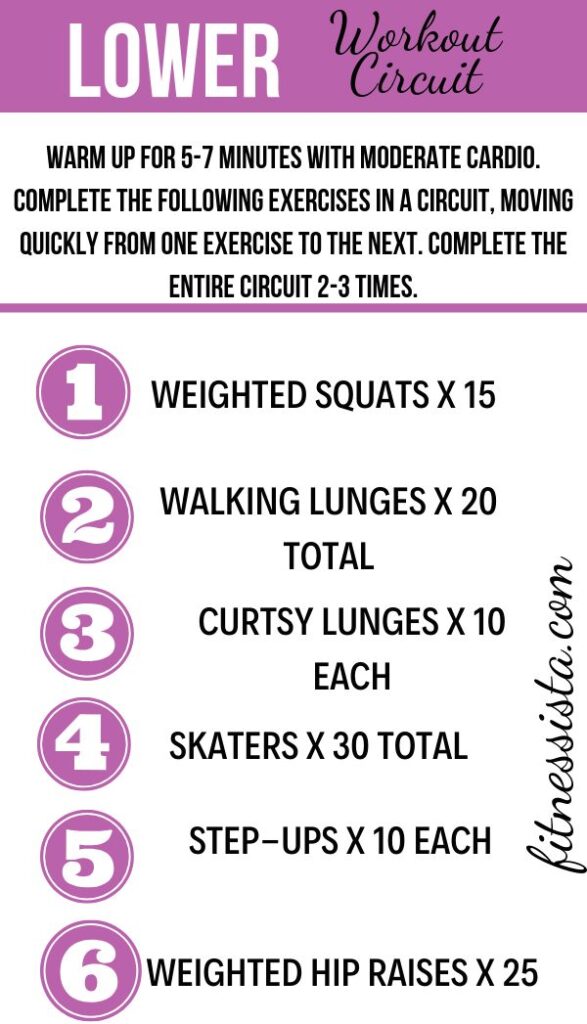Strength training enhances marathon performance by improving muscle strength, endurance, and injury resistance. It complements running routines effectively.
Strength training is essential for marathon runners. It builds stronger muscles, aids in efficient energy use, and reduces the risk of injuries. Integrating strength workouts into your training regimen can improve running economy, allowing you to run longer distances with less effort.
Exercises like squats, lunges, and core workouts are particularly beneficial. These routines not only bolster muscle power but also enhance overall body stability. By committing to a balanced strength training plan, marathon runners can achieve better performance, maintain stamina, and enhance their overall running experience.
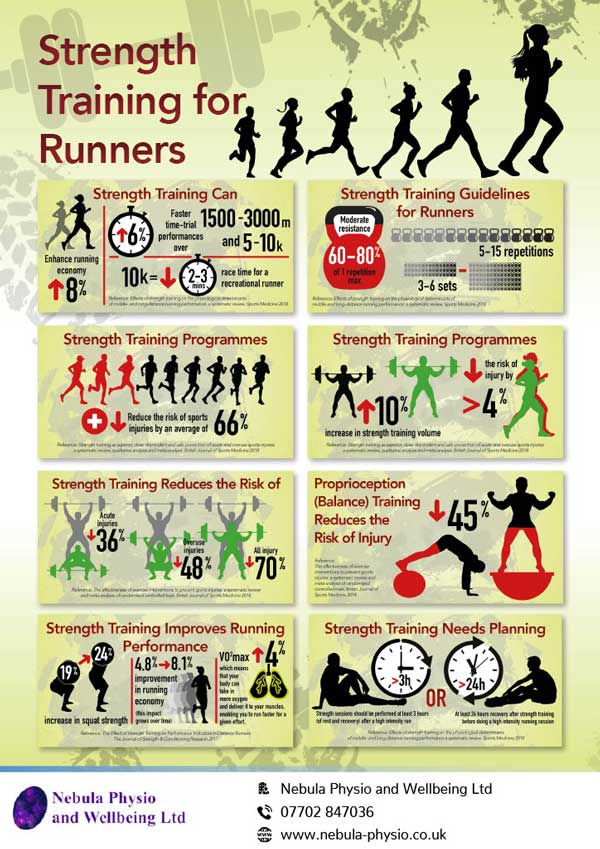
Credit: www.nebula-physio.co.uk
Strength Training And Marathon Running: The Connection
Strength training helps runners build muscle power. This power supports longer runs. Runners use less energy with strong muscles. They can run faster and longer. Strong muscles also prevent injuries. This makes training safer and more effective.
Muscle power boosts running performance. Strong legs help push off the ground harder. This makes each step more efficient. Core strength keeps the body stable. This stability helps with balance. Runners can maintain good posture for a long time. Good posture reduces fatigue.
Assessing Your Fitness Level
Understanding your current fitness is key. Start with a simple fitness test. Check your heart rate and endurance levels. Take note of any injuries or weak points. Record your baseline performance to track progress.
Set clear and achievable goals. Aim to improve muscle strength without compromising endurance. Focus on core strength and leg muscles. Make sure your goals are specific and measurable. Track your progress to stay motivated.
Crafting Your Strength Training Regimen
Strength training for marathon runners enhances endurance and reduces injury risk. Incorporate exercises targeting core, legs, and upper body. Balance your regimen with proper rest and recovery for optimal performance.
Balancing Running With Strength Workouts
Marathon runners need strong muscles to support long-distance runs. Strength training helps build endurance and prevent injuries. Running can make muscles tired, so balance is key. Alternate days of running and strength workouts. This gives muscles time to recover. Focus on exercises that target legs, core, and upper body. Lunges, squats, and planks are great choices. Keep strength sessions short but effective. Aim for 30 minutes, twice a week.
Periodization: Timing Strength Training For Optimal Performance
Plan strength training in cycles to match running goals. Increase intensity before the off-season and reduce it close to a marathon. This method is called periodization. It helps avoid overtraining and boosts performance. Early in the training cycle, focus on building muscle strength. As race day nears, shift to maintenance and flexibility. This ensures peak performance without muscle fatigue. Always listen to your body and adjust the plan as needed.
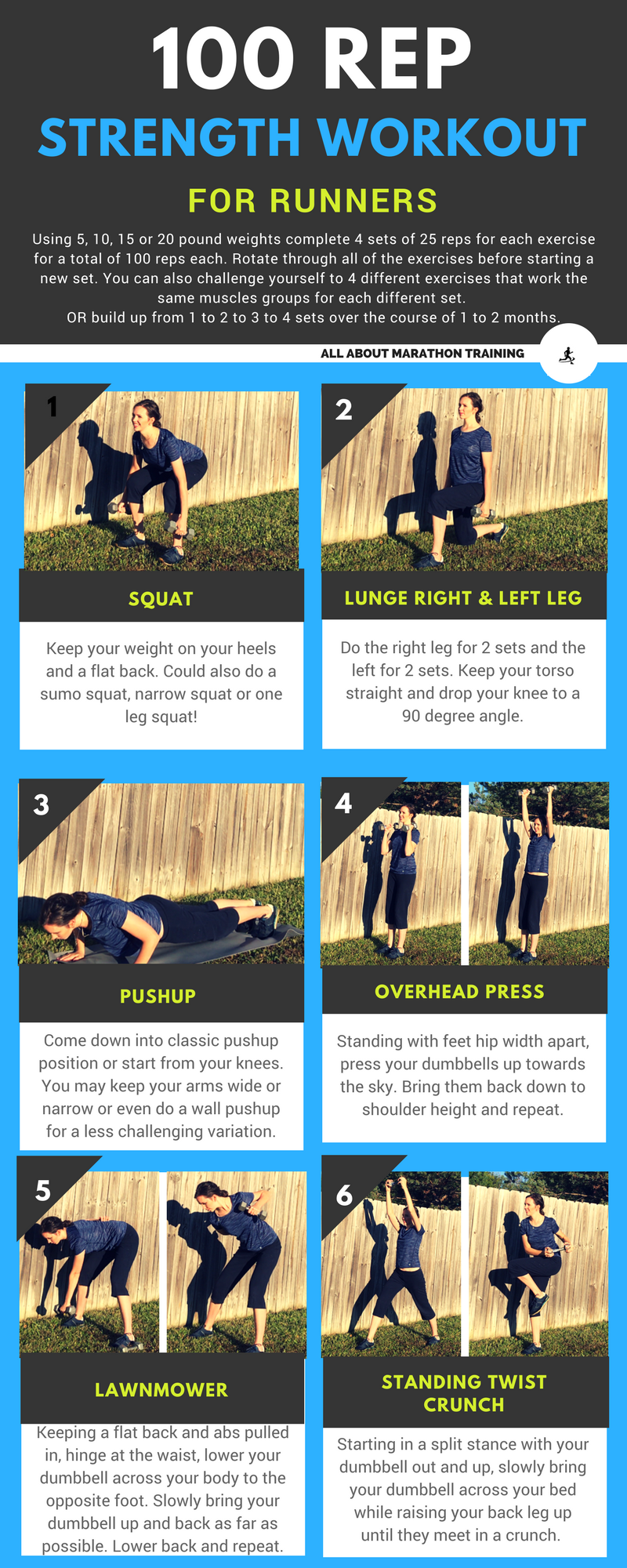
Credit: www.all-about-marathon-training.com
Key Strength Exercises For Marathoners
Squats help build strong legs. This boosts running power. Lunges improve balance and muscle strength. Deadlifts work on hamstrings and glutes. These muscles are crucial for runners. Step-ups mimic the running motion. They also build leg strength. Calf raises target calf muscles. Strong calves help in long-distance running.
Planks strengthen the core. A strong core supports good posture. Push-ups build upper body strength. This helps maintain form during runs. Russian twists target the oblique muscles. They improve core stability. Supermans work on lower back muscles. This prevents lower back pain. Bird dogs enhance balance and core strength. They are great for overall stability.
Incorporating Plyometrics For Explosive Power
Plyometric training helps runners develop explosive power. This type of training improves muscle strength and speed. Runners can become more efficient with their movements. Plyometrics also enhances coordination and balance. These skills are crucial for marathon runners. Plyometric exercises are intense but offer great benefits.
Here are some effective plyometric drills:
- Jump Squats: Boosts leg power and strength.
- Box Jumps: Enhances explosive power and coordination.
- Bounding: Improves running stride and efficiency.
- Lateral Hops: Increases agility and balance.
- Depth Jumps: Builds quick reaction time and strength.
Cross-training: Complementary Activities For Runners
Swimming offers a full-body workout. It enhances lung capacity and strengthens muscles. It also reduces the risk of injuries. Cycling is great for building leg strength. It boosts cardiovascular health and improves endurance. Both activities help in recovery. They provide a break from running while keeping fitness levels high.
Yoga improves flexibility and balance. It also reduces stress and promotes relaxation. Pilates focuses on core strength. It helps in maintaining posture and stability. Both practices prevent injuries and enhance overall performance. They are excellent for maintaining a strong, flexible body.
Nutrition And Recovery In Strength Training
Eating the right foods helps muscles grow. Protein is very important. Chicken, fish, and beans are good sources. Carbs give you energy. Whole grains, fruits, and vegetables are great choices. Healthy fats are also needed. Nuts, seeds, and avocados are good options. Drink plenty of water. Staying hydrated helps muscles recover.
Rest days are very important. They help your muscles heal. Taking breaks prevents injuries. Sleep is also crucial. Aim for 8 hours of sleep each night. Good sleep helps your body recover. It also boosts your energy levels. Rest and sleep make you stronger. They help you run better and longer.

Credit: www.coachbarclay.com
Monitoring Progress And Adjusting Your Plan
Keeping track of your progress is important. Use a journal or app to log your workouts. Note down the weights lifted and the number of repetitions. Record your running times and distances as well. This helps you see improvements in both strength and running performance.
Listen to your body. If you feel stronger and more energetic, it might be time to increase the intensity. Add more weight or reps to your strength training. On the other hand, if you feel tired or sore, consider scaling back. Reduce the weight or take extra rest days. Always prioritize recovery to avoid injuries.
Avoiding Common Pitfalls In Strength Training
Overtraining can lead to fatigue and poor performance. Common symptoms include muscle soreness, irritability, and sleep issues. To prevent overtraining, follow a balanced training plan. Rest days are crucial for recovery. Listen to your body and adjust intensity as needed. Overtraining can harm your marathon goals.
Injuries can sideline your training. Common injuries include shin splints, knee pain, and muscle strains. Early signs of injury should not be ignored. Pain lasting more than a few days needs attention. Rest and ice can help minor injuries. Persistent pain requires professional help. A physical therapist can guide your recovery. Proper care ensures a swift return to training.
Success Stories: Marathon Runners Who Excel With Strength Training
Many marathon runners have improved with strength training. Jane, an elite athlete, saw her time drop by 10 minutes. She focused on leg and core exercises.
Mark, another top runner, avoided injuries by strength training twice a week. He used weightlifting and resistance bands.
John shared his story of finishing his first marathon. He credited his success to strength training. It helped him build stamina and endurance.
Lisa, a seasoned runner, said her performance improved greatly. She included strength training in her routine. Her testimonial inspired many others.
Frequently Asked Questions
Should You Do Strength Training For A Marathon?
Yes, strength training is beneficial for marathon runners. It enhances endurance, reduces injury risk, and improves overall performance.
How Many Strength Sessions Per Week For Marathon Training?
Aim for 2-3 strength training sessions per week. Focus on core, legs, and upper body exercises. Balance with running workouts.
How Should Runners Do Strength Training?
Runners should do strength training twice a week, focusing on core, leg, and upper body exercises. Use bodyweight and free weights. Prioritize squats, lunges, and planks. Maintain proper form to prevent injury. Balance workouts with rest days.
How To Build Strength For A Marathon?
Build marathon strength by running long distances, incorporating interval training, strength exercises, and proper nutrition. Rest and recover adequately.
What Is Strength Training For Marathon Runners?
Strength training enhances muscle endurance, reduces injury risk, and improves overall running performance for marathon runners.
How Often Should Runners Do Strength Training?
Runners should perform strength training 2-3 times per week to complement their running regimen.
Can Strength Training Improve Running Speed?
Yes, strength training can improve running speed by enhancing muscle power and efficiency.
What Exercises Are Best For Runners?
Squats, lunges, deadlifts, and planks are excellent exercises for runners to build strength and stability.
Should Runners Lift Heavy Weights?
Runners can benefit from lifting moderate weights with higher repetitions to build endurance without excessive bulk.
Can Strength Training Help Prevent Injuries?
Yes, strength training strengthens muscles and joints, reducing the risk of common running injuries.
Conclusion
Strength training is essential for marathon runners. It boosts endurance, prevents injuries, and enhances performance. Incorporate strength exercises into your routine for better results. Remember, consistency is key. Stay dedicated, and you’ll notice significant improvements in your marathon times. Happy running!

